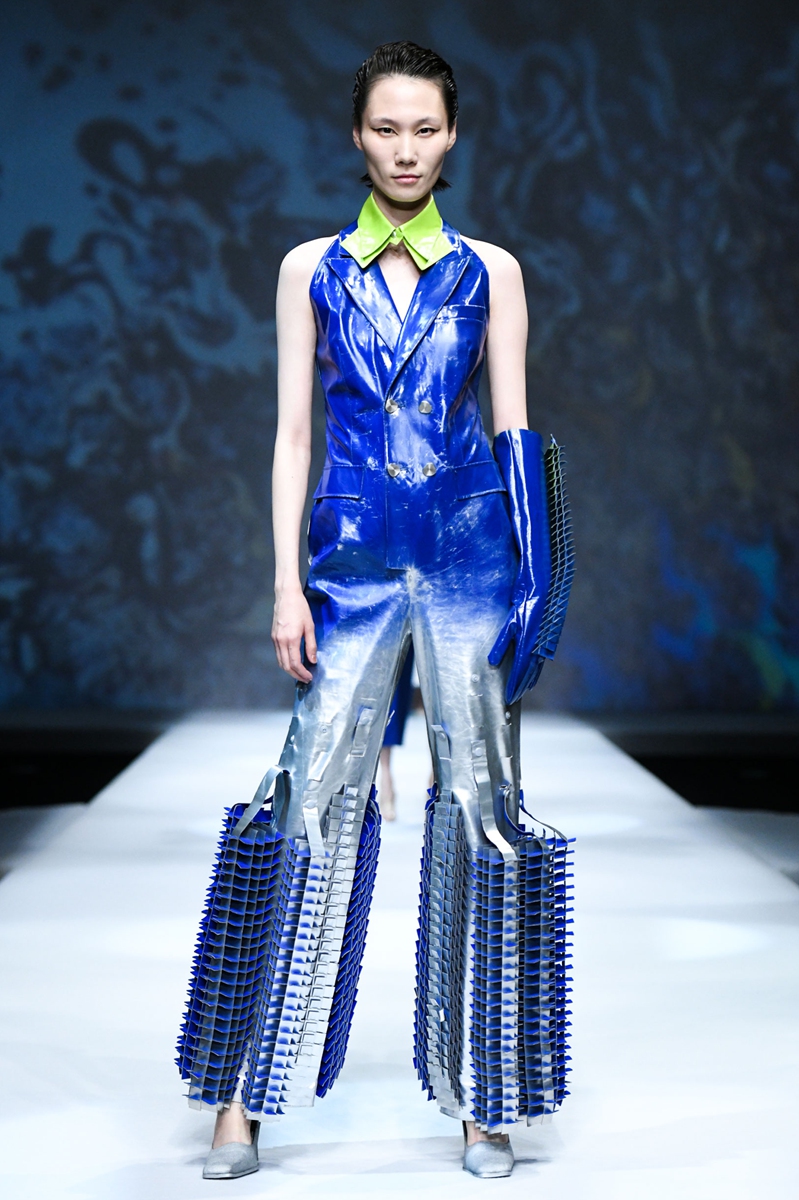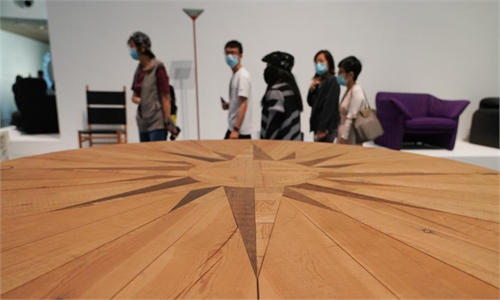Graduation fashion show by Tsinghua triggers controversy over eye makeup suspected of 'humiliating' Chinese

Photo of 2021 Graduation Fashion Show: website of Tsinghua University
A graduation fashion show by the Academy of Art and Design, Tsinghua University, became mired in controversy on social media after some Chinese netizens said the models' makeup design deliberately played into Western stereotypes of Asians and humiliated Chinese people.
Chinese netizens said the eye makeup design of the models at the show made them "uncomfortable," as the fashion show chose models with small eyes and deliberately applied eye makeup with long black eyeliners to lengthen their already small eyes.
Some netizens said the makeup was designed to fit Western stereotypes of Asians, saying they humiliated themselves, and even called it an "infernal look."
Others said that while long eyeliner makeup is commonly seen in fashion shows, that doesn't make it right. They said the West has long mocked Asians for their small eyes and the use of such makeup by Tsinghua University aims to belittle Chinese people.
But other netizens on Sina Weibo argued that the eye makeup was a "phoenix eye" design featuring a tail that sweeps up toward the temple. People with phoenix eyes are believed to be righteous and wise.
Tsinghua University could not be reached for comments as of press time.
The controversy came after netizens posted the 2021 Graduation Fashion Show review on Youtube on June 15. The fashion show titled "The Door Opener" was held on May 20 in Beijing.
The university described the fashion show as a mixture of fashion and new media arts. Some works seek inspiration from history and revive traditional themes with a new style. Some works reflect and explore social issues such as the digital crisis, web celebrity culture and online social networking. Other works focus on social groups such as city builders, urban wanderers and migrant workers, according to the introduction on website of Tsinghua University.
In another case, Hong Kong singer Karen Mok became mired in controversy on Chinese mainland social media following the release of a music video in which she was spotted wearing a costume by Dolce & Gabbana, an Italian luxury brand that angered Chinese people in 2018 when it released a series of adverts showing a Chinese woman struggling to eat pizza and spaghetti with chopsticks. Both Mok and her studio apologized for the move.
Shen Yi, director of the research center for cyberspace governance at Fudan University in Shanghai, told the Global Times on Wednesday that the recent controversies shed light on the rising sense of desire among Chinese netizens for China, Chinese people and Chinese culture to be treated equally and to be respected. Lack of understanding of Chinese culture or ignorance of Chinese people's feelings and sense of pride will inevitably result in blunders.
Chinese netizens' seeking respect and recognition for Chinese culture in the international community accompanies the rise of China. It is natural and understandable, Shen noted.
Essentially, it is an issue of how we should strive for our own aesthetic standards of fashion and culture. With the rapid development of technology and the increasingly close connection of the world, how to maintain openness, confidence and independence of our own civilization is an unsolved problem to be explored, some observers said.
Global Times


